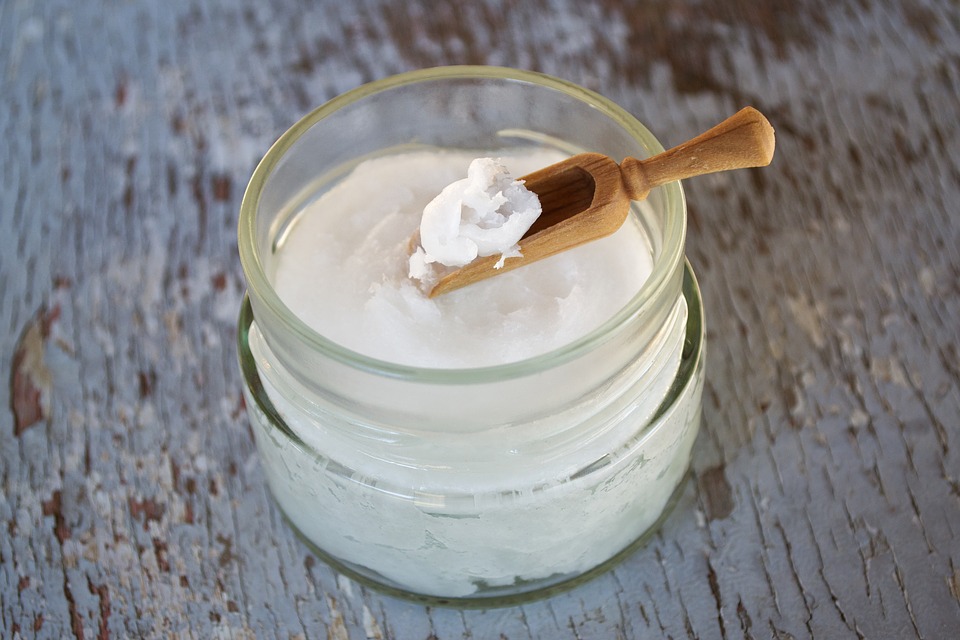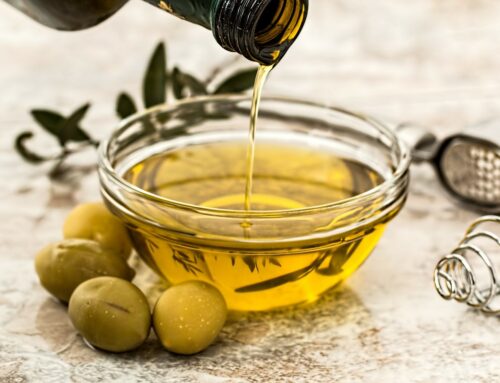Coconut oil contains at least 10 polyphenols being:
garlic acid, ferulic acid, quercetin, methyl catechin, p-coumaric, acid dihydrokaempferol and myricetin glycoside, vanillic, caffeic, syringic.

Several authors confirm that in addition to the benefits of the extra virgin fatty acids in coconut oil, the polyphenols in extra virgin coconut oil help to boost our immune system. Polyphenols also help lower the risk of cardiovascular disease .
- gallic acid polyphenol in extra virgin coconut oil:
Gallic acid is a phenolic acid and counteracts inflammation and pain (cyclooxygenase 2 inhibitor), an antioxidant, counteracts swelling of cancer (antineoplastic agent) and induces cancer cells to ‘commit suicide’ (= apoptosis inducer). - ferulic acid polyphenol in extra virgin coconut oil:
Ferulic acid has the ability to fight free radicals while increasing the effectiveness of other antioxidants, such as vitamins A, C and E. - Quercetin Polyphenol in Extra Virgin Coconut Oil:
Quercetin helps to prevent unwanted cell growth, such as cancerous tumors. In addition, quercitin has an anti-inflammatory and wound healing effect, counteracts arteriosclerosis and promotes blood circulation. It limits cardiovascular diseases, such as high blood pressure and heart failure. - Catechin Polyphenol in Extra Virgin Coconut Oil:
Catechins are natural antioxidants that help prevent cell damage. Catechins can reduce the formation of free radicals in the body. They protect cells and molecules from damage. - P-coumaric polyphenol in extra virgin coconut oil:
p-coumaric acid is an antioxidant in reducing oxidative stress and inflammatory responses. - Dihydrokaempferol polyphenol in extra virgin coconut oil:
Another term is aromadendrin. It is a favonol and can be used against Alzheimer’s disease. Amyloid plaques have been implicated in neurodegenerative diseases such as Alzheimer’s disease. Amyloid plaques Coconut oil contains at least 10 polyphenols being: used in cognitive decline research Aromadendrin: a double amyloid promoter to accelerate fibrillation and reduce the cytotoxicity of both amyloid-β and hIAPP - Myricetin Glucoside Polyphenol in Extra Virgin Coconut Oil:
This is a flavonoid and acts as an antioxidant by scavenging free radicals. Strong in metal chelation of endogenous substances. Provides regulation of the antioxidant system. Good to help prevent many chronic diseases and improve health - Vanillic Polyphenol in Extra Virgin Coconut Oil:
Vanilla to treat intestinal gas and fever. To increase sexual desire (as an aphrodisiac). To stop tooth decay. - Caffeic Polyphenol in Extra Virgin Coconut Oil:
Caffeic acid is a catechol-containing polyphenol, which has been shown to have a demethylating function, just like the tea polyphenols. Good (de)methylation is necessary for energy production, DNA regeneration, the production of hormones and neurotransmitters, immune cell production, inflammation inhibition, liver function, cardiovascular system, recovery and stress processing. - Syringic Polyphenol in Extra Virgin Coconut Oil:
Syringic acid (SA) is a phenolic compound of natural origin. SA is an excellent compound to be used as a therapeutic agent in various diseases (diabetes, CVD, cancer, cerebral ischemia, neuro and liver damage) and possesses antioxidant, antimicrobial, anti-inflammatory and anti-endotoxic activities.










